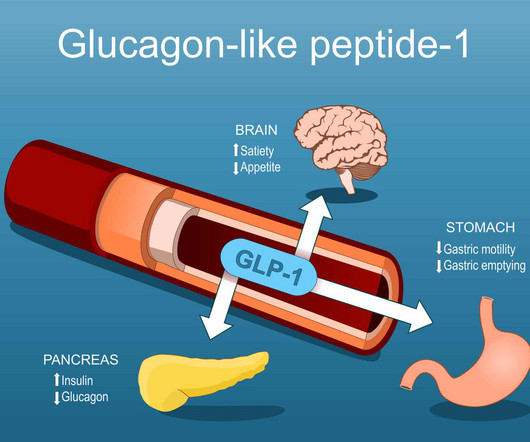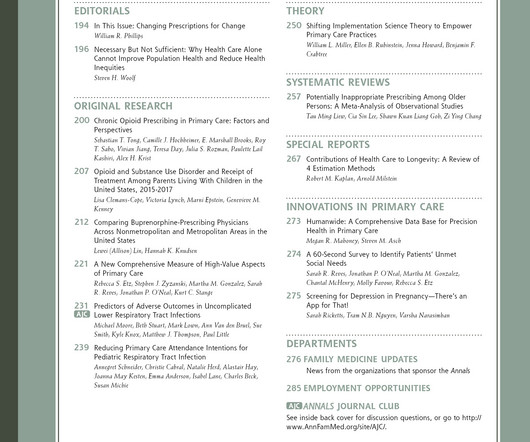Key Facts GPs Should Know About GLP-1 Analogs
Family Medicine Initiative
APRIL 9, 2024
Demand for new obesity medications like semaglutide (GLP-1 analogs) is high, but availability is low. Yes, one year after stopping the medication, patients regain ½ – ⅔ of their previous weight loss: What are other clinical benefits? mg or placebo in 2019. So, which patients should get them first? semaglutide 1.0












Let's personalize your content